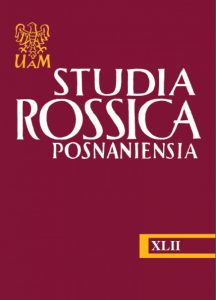О семантических процессах в общественно-политической лексике (на примере слова „фашизм” и его дериватов)
About semantic processes in the political lexicon (on the example of word “fascism” and its derivatives)
Author(s): Olga FrolovaSubject(s): Theoretical Linguistics, Applied Linguistics, Philology
Published by: Uniwersytet Adama Mickiewicza
Summary/Abstract: The article discusses the semantics of the word fascism in explanatory dictionaries and analyzes its current use. Comparing different interpretations in dictionaries, one can see how the authors avoid mentioning a particular period in which the term fascism emerged. The important semantic features of the term fascism are racism, dictatorship, and opposition to a free society. The word fascist is used to refer to: a) a supporter of a certain ideological and political doctrine that arose and was implemented in Italy and Germany in the first half of the twentieth century, characterized by racism and chauvinism, and taking the form of dictatorship; b) a follower of racist attitudes; c) the enemy, an object of hatred; d) the enemy in children's games; e) camouflage element in the oxymoronic phrase 'liberal fascism', masking the rejection of liberal values by the speaker.
Journal: Studia Rossica Posnaniensia
- Issue Year: 42/2017
- Issue No: 1
- Page Range: 127-136
- Page Count: 10
- Language: Russian

